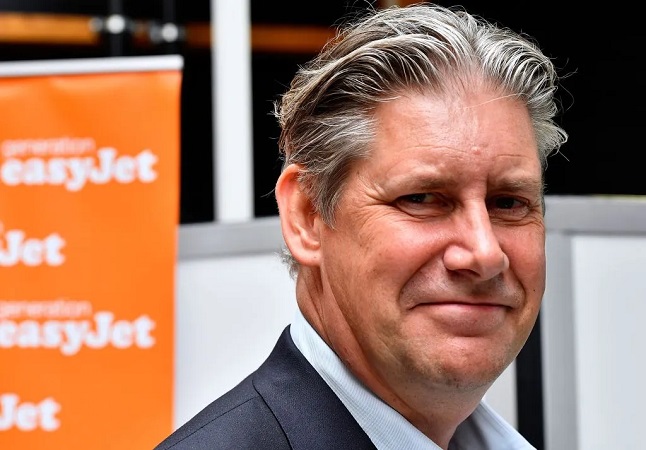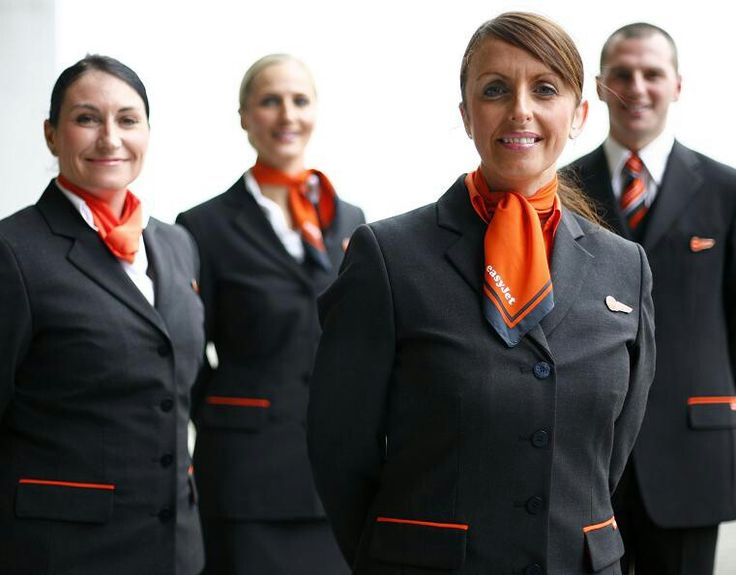LONDON: In a presentation to shareholders on Wednesday, Johan Lundgren, the CEO of easyJet, revealed the airline’s growth strategy and ambitious targets for the next decade.

He highlighted the airline’s resilience and competitive advantage in the European market, despite the challenges posed by the COVID-19 pandemic, the conflict in the Middle East, and the supply constraints of aircraft manufacturers.
Aircraft orders and financing
Lundgren said that easyJet has secured a favourable deal with Airbus to ensure the supply of new aircraft for the airline’s expansion plans. He said that Airbus and Boeing are not meeting their projected supply due to the pandemic and other factors, but easyJet has accelerated its deliveries ahead of plan.
He said that the airline expects 16 deliveries in FY24 and 19 deliveries in FY25, out of a total of 158 firm orders (90 A320s and 68 A321s) due between FY24 and FY29. He also said that the airline has proposed an additional order to secure supply of aircraft for FY29-34, subject to shareholder approval.
Lundgren said that easyJet is unaffected by the GTF engine challenges that have impacted some of its competitors, as the airline has a diversified fleet of CFM and GTF engines. He also said that the airline has a strong balance sheet and a flexible financing strategy to fund its capital expenditure.
He said that all FY24 deliveries are planned to be purchased through free cash flow, and that the gross capex can be funded through a number of options, such as sale and leaseback proceeds, JOLCOs, and debt. He said that of the total fleet, 54% is owned, and all owned aircraft are unencumbered.
Network wins and market share
Lundgren said that easyJet has achieved significant network wins and market share gains in FY23, as it launched 80 new routes and benefited from the reduced capacity and focus of legacy carriers on long-haul and feeder network.
He said that Wizz removed 25% of head-to-head routes in peak summer, and Air France removed 6% of head-to-head routes in peak summer, giving easyJet more opportunities to capture demand and increase profitability.
He said that the airline has seen an 83% year-on-year profit improvement in Berlin, and a 45% year-on-year profit improvement in Italy, as well as secured traffic rights to Turkey from Germany.
He said that the airline expects further benefit from its FY23 investment in Porto and Lisbon, where it has increased its presence and market share.
Lundgren said that easyJet has also announced new initiatives for FY24, such as adding three additional aircraft in Switzerland this winter, launching bases in Birmingham and Alicante, and launching 90 new routes for FY24.
He said that the airline expects its UK market share to rise from 5% to 7% in FY24, as it leverages its strong brand and customer loyalty.
He also said that the airline is launching French and German source markets for its holiday business, which will enable it to offer more choice and value to customers across Europe.
Holiday business and outlook
Lundgren said that easyJet holidays is a key part of the airline’s growth strategy, as it offers a differentiated and integrated product that combines flights, hotels, and transfers. He said that the airline is rolling out a dynamic inventory system that will connect into over 1,000 hotels in 2024, allowing it to offer more flexibility and personalization to customers.
He said that the airline expects FY24 holiday customers to grow more than 35% year-on-year, and the average selling price to increase by high single digit percentage year-on-year. He said that the holiday business has a strong customer satisfaction score and a high repeat booking rate, indicating its potential to become a market leader.
Lundgren said that easyJet had a strong October, with revenue per seat up 12% and profit growth year-on-year, despite the near term impact from the conflict in the Middle East.
He said that Israel, Jordan, and Egypt account for 4% of the planned H1 capacity and 10% of the available seat kilometres, and that the industry search and booking data trends have temporarily declined since the conflict began, but have shown recent improvement in late trading.
He said that the airline does not currently expect its Q1 loss to improve year-on-year, due to the conflict in the Middle East, but has a positive outlook for H2’24, as it expects limited competitor growth, OEM supply restriction, and strong demand recovery.
He said that easyJet’s H2’24 capacity is about 59 million seats, up 8% year-on-year, and that its H2 revenue per seat is ahead year-on-year, with about 10% sold. He also said that easyJet holidays is already 30% sold for summer 24, with average selling price ahead year-on-year.
Lundgren concluded his presentation by outlining the airline’s ambitious targets for the next decade. He said that the airline aims to achieve a group profit before tax per seat of £7-£10, a holiday profit before tax of more than £250 million, and an overall profit before tax of more than £1 billion.
He said that the airline plans to achieve these targets by pursuing a disciplined capacity growth of about 5% compound annual growth rate, maintaining a strong cost discipline, and delivering on its customer proposition and sustainability agenda.
He said that easyJet is well-positioned to capitalize on the opportunities and challenges in the European market, and to create long-term value for its shareholders, customers, and employees.
